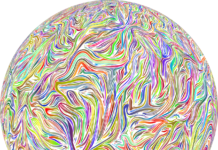Data Science, a dynamic and interdisciplinary field, has emerged as a cornerstone of the digital age, orchestrating the convergence of data, technology, and analytical thinking. In this comprehensive exploration, we venture into the vast landscape of Data Science, unravelling its historical evolution, fundamental principles, and profound impact on industries, decision-making, and our understanding of the world.
Data Science, at its essence, represents the art and science of extracting valuable insights and knowledge from data. It encompasses a diverse set of techniques, methodologies, and tools that enable us to make sense of the deluge of data generated in our digitally connected world. Data Science is not just a profession; it’s a transformative force that underpins the information age.
The origins of Data Science can be traced back to the intersection of statistics, computer science, and domain expertise. In the early days of computing, statisticians and data analysts grappled with the challenge of harnessing the power of machines to process and analyze data. Pioneers like John Tukey, who coined the term “bit,” laid the foundation for the computational aspects of data analysis.
The advent of the digital era, coupled with the explosion of the internet, led to an unprecedented proliferation of data. Organizations found themselves drowning in data, and the need for systematic methods to extract insights from this data became increasingly apparent. This gave rise to the modern era of Data Science, where computing power, data storage, and advanced algorithms converged to create a discipline that could handle and derive value from large and complex datasets.
One of the defining characteristics of Data Science is its interdisciplinary nature. It draws upon a diverse array of domains, including statistics, computer science, machine learning, domain knowledge, and data engineering. Data Scientists are the modern-day polymaths who navigate these disciplines, employing a versatile skill set to solve complex problems.
Data Science encompasses the entire data lifecycle, from data collection and storage to analysis, interpretation, and communication of results. It requires a keen understanding of data quality, data cleaning, and data preprocessing, as well as the ability to identify patterns, trends, and anomalies in data.
Machine learning, a subset of Data Science, plays a pivotal role in automating decision-making processes and predictions. It involves the development of algorithms that enable machines to learn from data and make informed decisions or predictions. Supervised learning, unsupervised learning, and reinforcement learning are just a few of the branches of machine learning that Data Scientists leverage to solve diverse problems.
Data Science also encompasses the realm of data visualization, where the art of presenting data in a comprehensible and informative manner comes into play. Effective data visualization is a powerful tool for conveying complex insights to non-technical stakeholders, enabling data-driven decision-making at all levels of an organization.
The applications of Data Science are far-reaching and touch virtually every industry and domain. In healthcare, Data Science is employed for medical image analysis, drug discovery, and predictive analytics for patient outcomes. It has the potential to revolutionize healthcare delivery, making it more personalized and efficient.
In finance, Data Science is a driving force behind algorithmic trading, risk assessment, fraud detection, and customer segmentation. The analysis of vast financial datasets enables institutions to make informed investment decisions and manage risks effectively.
Retail and e-commerce rely heavily on Data Science for customer profiling, recommendation systems, and demand forecasting. By analyzing customer behavior and transaction data, businesses can tailor their offerings and marketing strategies to individual preferences.
The field of marketing has been transformed by Data Science, with A/B testing, customer segmentation, and sentiment analysis becoming integral to campaign optimization and customer engagement. Data-driven marketing strategies allow organizations to target their efforts more effectively.
Data Science also plays a significant role in transportation and logistics, optimizing routes, reducing fuel consumption, and enhancing supply chain management. In this domain, Data Science has the potential to reduce costs and improve the sustainability of transportation systems.
Environmental sciences benefit from Data Science through climate modeling, remote sensing, and ecological data analysis. These applications aid in understanding and addressing critical environmental challenges, including climate change and biodiversity conservation.
Government and public policy are increasingly reliant on Data Science for evidence-based decision-making. Data-driven insights inform policies related to healthcare, education, urban planning, and disaster response, among others.
Data Science is not without its ethical considerations. The responsible use of data, privacy protection, and mitigating biases in algorithms are vital aspects of ethical Data Science. Ensuring that the benefits of data-driven technologies are equitably distributed is an ongoing challenge.
In conclusion, Data Science is not just a field; it is a transformative force reshaping the way we approach problems and make decisions in the digital age. Its interdisciplinary nature, reliance on advanced technologies, and far-reaching applications underscore its significance in today’s data-driven world. As we continue to embrace Data Science, it promises to unlock new insights, drive innovation, and empower organizations and individuals to navigate the complexities of our interconnected world with greater precision and clarity.
Interdisciplinary Approach:
Data Science draws upon various disciplines, including statistics, computer science, domain knowledge, and data engineering, to analyze and extract insights from data.
Data Collection and Storage:
Data Scientists are involved in collecting, cleaning, and storing data from diverse sources, including sensors, databases, and web applications.
Data Preprocessing:
Before analysis, data must be prepared, which involves cleaning, transforming, and structuring data to make it suitable for analysis.
Machine Learning:
Machine learning algorithms are applied to data for tasks such as classification, regression, clustering, and prediction. Supervised, unsupervised, and reinforcement learning are commonly used.
Data Visualization:
Effective data visualization techniques are employed to present complex data in a comprehensible and informative manner, aiding in decision-making.
Big Data Handling:
Data Scientists work with large and complex datasets, often utilizing distributed computing frameworks like Hadoop and Spark to process and analyze big data.
Statistical Analysis:
Statistical techniques are used to identify patterns, correlations, and trends in data, enabling data-driven insights.
Predictive Analytics:
Data Science includes predictive modeling, where algorithms are developed to make forecasts and predictions based on historical data.
Data Ethics:
Ethical considerations are crucial in Data Science, focusing on issues like data privacy, bias mitigation, and responsible data usage.
Domain-Specific Applications:
Data Science is applied across industries, including healthcare, finance, marketing, and transportation, to solve domain-specific problems and drive informed decision-making.
Data Science, a dynamic and interdisciplinary field, transcends the realm of its key features to become a profound force that reverberates across the spectrum of human knowledge and endeavor. It is not merely a collection of tools and techniques; it represents a transformative paradigm shift in how we perceive, analyze, and leverage data in the digital age. In this expansive exploration, we delve into the deeper dimensions of Data Science, moving beyond its technical aspects to understand its broader implications for society, culture, and the human experience.
At its core, Data Science is a manifestation of humanity’s relentless quest for knowledge and understanding. It embodies our innate curiosity and the desire to decipher the intricate patterns that underlie the world around us. In an era marked by the proliferation of data, Data Science emerges as the torchbearer of this quest, illuminating the hidden insights buried within the vast seas of information.
One of the profound implications of Data Science is its ability to democratize knowledge and decision-making. In the past, access to critical information and analytical tools was often limited to a select few. Data Science changes this paradigm by empowering individuals and organizations to harness the power of data-driven insights. It levels the playing field, allowing diverse voices and perspectives to contribute to informed decision-making.
Moreover, Data Science challenges conventional notions of expertise and authority. In a world where algorithms and data analysis can rival or surpass human experts in various domains, questions arise about the role of human professionals. The intersection of human expertise and machine intelligence gives rise to new models of collaboration, where humans and machines complement each other’s strengths to achieve superior outcomes.
The ethical dimensions of Data Science have gained prominence as well. The responsible use of data, protection of privacy, and the mitigation of biases in algorithms have become critical considerations. Ensuring that Data Science is wielded for the benefit of society, rather than for harmful purposes, is an ongoing challenge that demands vigilance and ethical scrutiny.
Data Science also has a profound impact on how we perceive truth and knowledge. In an era characterized by the proliferation of data and information, discerning fact from fiction becomes a complex task. Data Science equips us with tools to analyze and validate information, fostering a more critical and evidence-based approach to knowledge.
The advent of Data Science has transformed education and learning. It has given rise to data-driven pedagogy, personalized learning experiences, and educational analytics. Students can receive tailored instruction, and educators can make data-informed decisions to enhance teaching and learning outcomes.
Furthermore, Data Science has catalyzed a revolution in healthcare. It enables predictive analytics for disease prevention, drug discovery, and personalized treatment plans. The analysis of vast healthcare datasets holds the potential to revolutionize medical research and improve patient care, leading to more precise diagnoses and treatments.
In finance, Data Science is a cornerstone of algorithmic trading, risk assessment, and fraud detection. It empowers financial institutions to make data-driven investment decisions, manage risks effectively, and detect fraudulent activities in real-time.
Data Science also shapes the landscape of marketing and consumer behavior. The analysis of customer data enables businesses to create personalized marketing campaigns, improve customer engagement, and optimize pricing strategies. This not only benefits businesses but also enhances the overall consumer experience.
In the realm of urban planning and transportation, Data Science offers innovative solutions for optimizing traffic flow, reducing congestion, and improving public transportation systems. It has the potential to create more efficient and sustainable cities, enhancing the quality of life for urban populations.
Data Science intersects with environmental science through applications like climate modeling, ecological analysis, and remote sensing. It aids in understanding and mitigating the impacts of climate change, tracking biodiversity, and preserving natural ecosystems.
Moreover, Data Science has a profound impact on governance and public policy. Evidence-based decision-making, facilitated by data analysis, informs policies related to healthcare, education, infrastructure, and social welfare. It empowers governments to allocate resources more efficiently and address societal challenges effectively.
The existence and proliferation of Data Science invite us to question the very nature of human cognition and creativity. As machines demonstrate the ability to process and analyze data, make predictions, and generate insights, we are prompted to reflect on the essence of human intelligence and creativity. How do human cognitive processes differ from those of machines, and what unique qualities define our creativity and ingenuity?
In conclusion, Data Science is a catalyst for transformation that transcends the confines of its technical features. It embodies the human pursuit of knowledge, reshapes decision-making, challenges conventional paradigms, and raises profound ethical and philosophical questions. As we navigate the ever-evolving landscape of Data Science, we do so with the awareness that it is not just a tool; it is a profound expression of human ingenuity and a powerful force for positive change in our interconnected world.






















